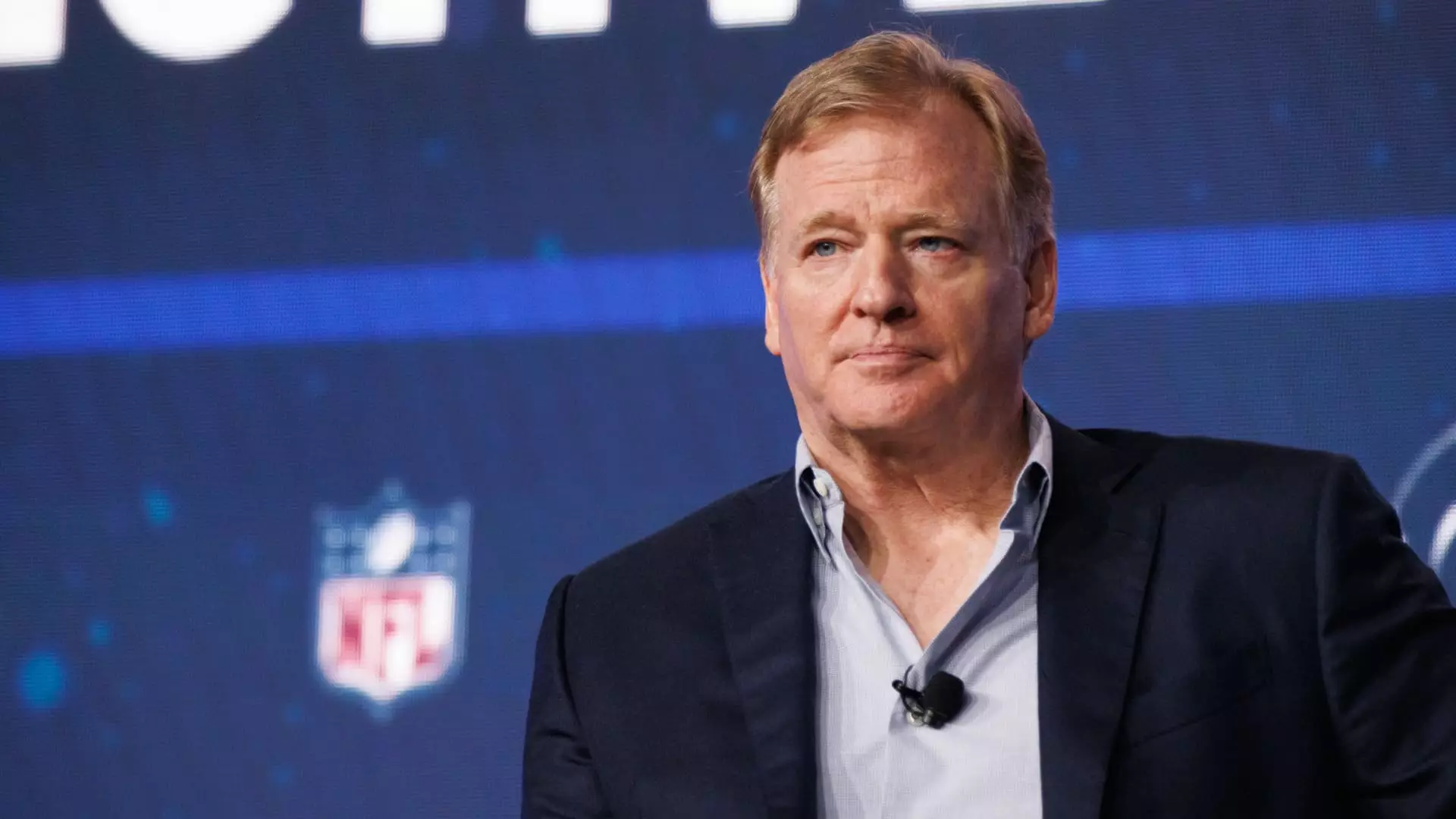The National Football League (NFL) is at a crossroads regarding ownership structures, contemplating the inclusion of minority private equity stakes in its franchises. In a recent interview, NFL Commissioner Roger Goodell sought to clarify the league’s evolving stance on team ownership, indicating that they might permit private equity firms to acquire up to 10% of a franchise’s equity. This potentially transformative move underscores the league’s intent to adapt to the economic realities of modern sports ownership and align with the emerging trends in investment practices.
Traditionally, the NFL has maintained strict ownership policies, favoring individual and family ownership over institutional investors. This reluctance stemmed from a desire to maintain control and ensure a personal commitment to the franchises and their communities. However, as franchise valuations soar—particularly following lucrative broadcasting deals—the reality has set in: the financial barrier to entry is becoming insurmountable for the average billionaire. The historic purchase of the Washington Commanders for $6.05 billion highlighted this trend, prompting a reconsideration of the ownership landscape. The NFL must adapt to attract diverse, substantial financial backing that supports the future of its franchises, thereby acknowledging the need to revisit its long-standing ownership policies.
While the NFL has historically stood firm against institutional investments, it is noteworthy that other major North American leagues have embraced private equity to various extents. The National Basketball Association (NBA), Major League Baseball (MLB), and the National Hockey League (NHL) allow for minority stakes of up to 30%. This more flexible approach has provided these leagues with an influx of capital and diversified their ownership groups, which potentially enhances the overall health of the leagues. The NFL’s cautious approach now appears increasingly out of step, highlighting the need for a contemporary evaluation of its policies.
Goodell indicated that the proposed 10% cap on private equity ownership is merely a starting point. This initial limitation reflects a cautious approach aimed at assuaging traditional ownership fears while still welcoming new investments into the fold. By maintaining control, the NFL can ensure that the overarching direction remains consistent with its historical values, despite the necessary evolution of its financing methods. However, the persistence of such barriers also suggests a reluctance to fully embrace the vast potential for growth through institutional investors, limiting opportunities for greater financial stability and innovation.
Challenges of Attracting Minority Investors
The notion of minority stakes might appeal to a range of investors, yet challenges abound. Prospective minority owners often realize that, with limited decision-making power, they would be relegated to passive roles, an undesirable state for many accustomed to holding substantial influence in their business endeavors. The realities of private equity investments, combined with the NFL’s current limitations on ownership roles, may deter high-profile individuals who seek an impactful involvement in franchise operations. The NFL’s ambitions of attracting a diverse subset of affluent investors might prove difficult if the compensation for their investments does not match their expectations.
Exploring the Impact on Franchise Operations
Introducing minority private equity ownership could have repercussions on the operational integrity of franchises. Unlike the NFL, the National Women’s Soccer League allows private equity firms to assume majority control over teams, ostensibly granting them more substantial influence over operational decisions. This model raises questions regarding decision-making dynamics and accountability within franchises. The NFL may find itself navigating a delicate balance between fostering new investment opportunities and maintaining the established culture that defines its franchises.
The NFL’s consideration of minority private equity ownership reflects the league’s willingness to adapt to changing economic landscapes while eyeing potential benefits from diverse investment sources. This critical juncture offers the opportunity to redefine traditional ownership structures and align with the realities of modern investment practices. Yet, along with this integration must come the recognition of the values and experiences that define the NFL. The resolution lies in crafting policies that not only invite participation from new investors but also preserve the foundational ethos of competition and community that has sustained the league for generations.


Leave a Reply